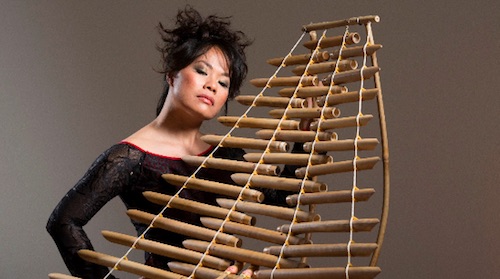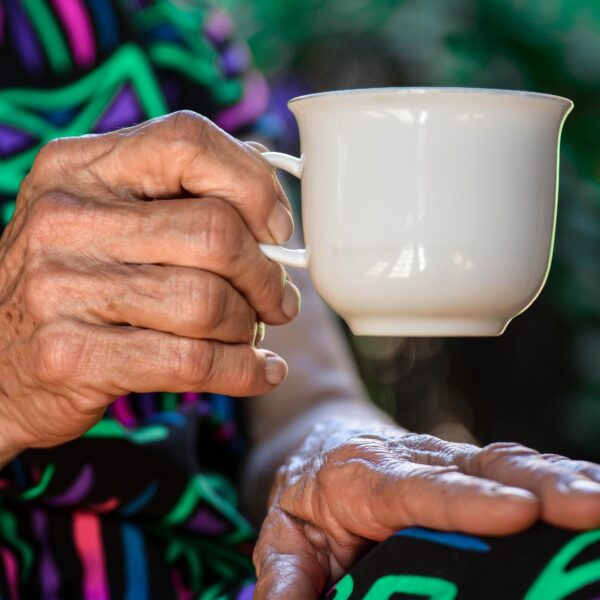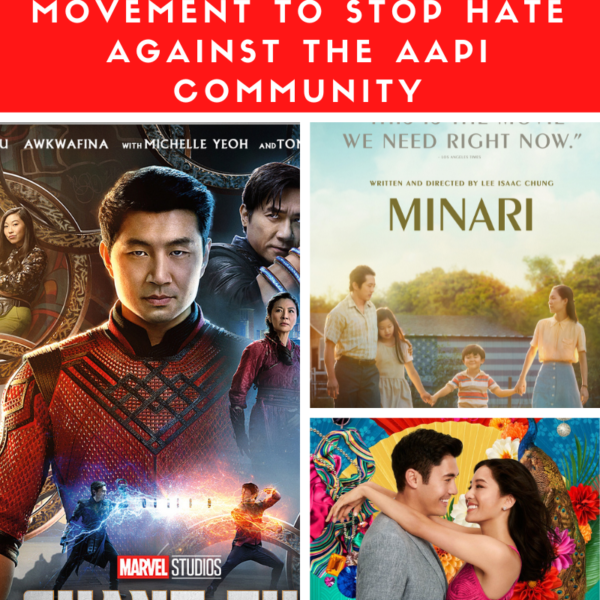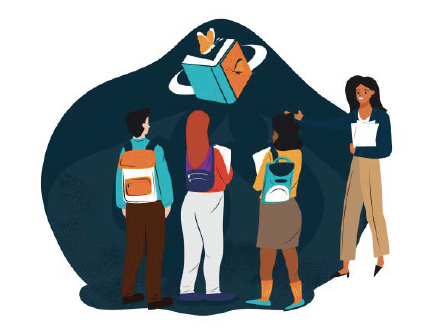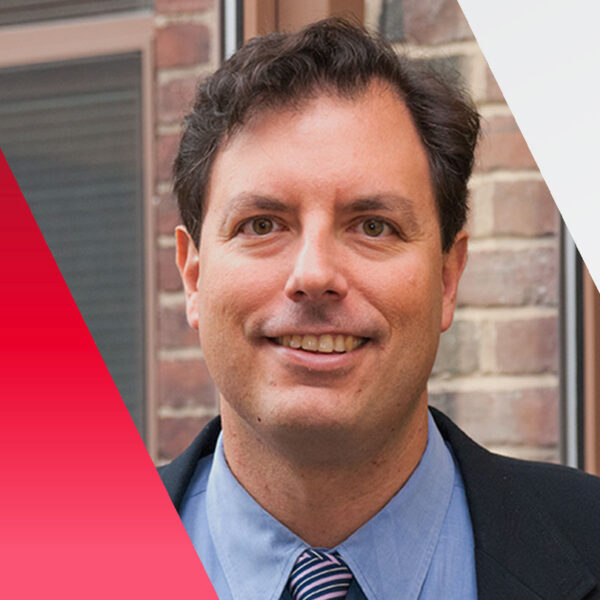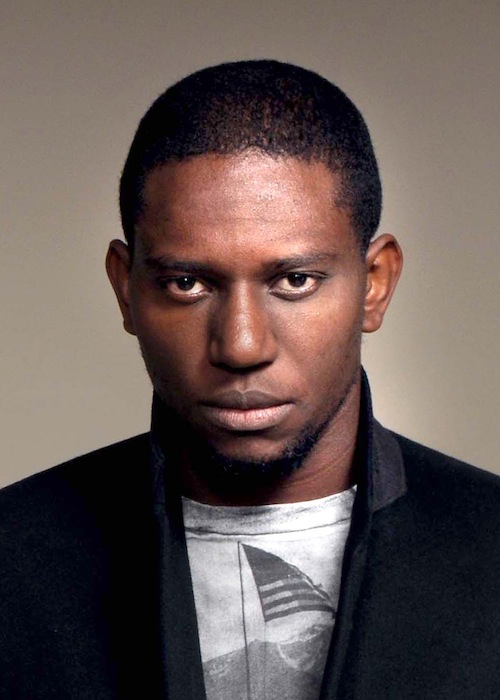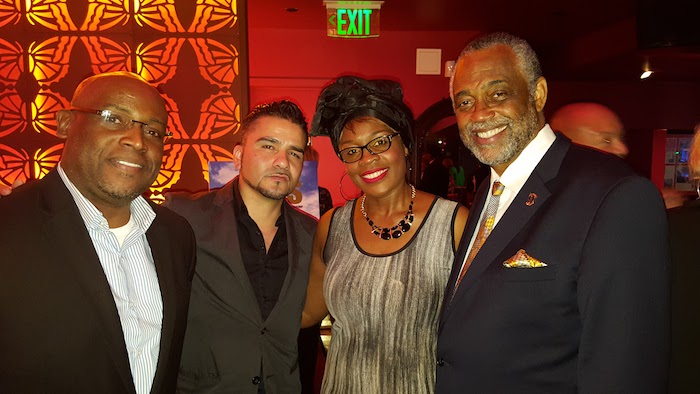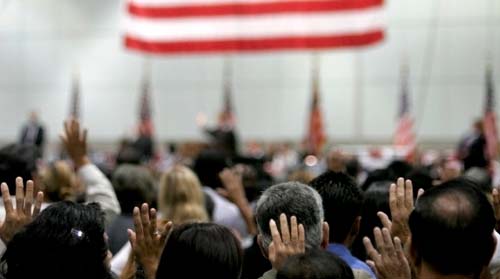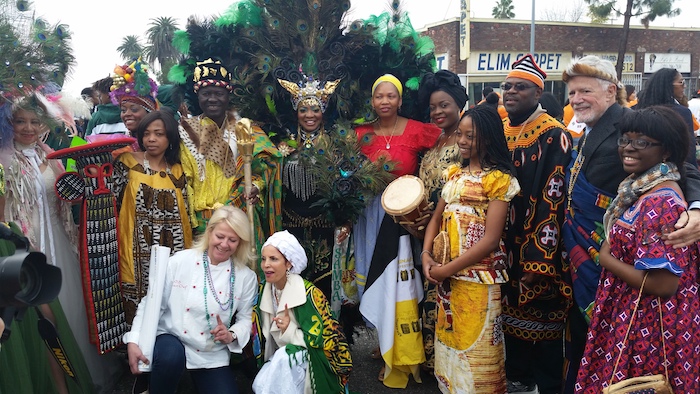Oscar-nominated and Emmy Award-winning composer Vân-Ánh Võ premieres her new musical epic this month in San Francisco, inspired by the experiences of the Vietnamese Boat People. Integrating traditional and new instruments, video, field recordings and interviews with survivors, The Odyssey–From Vietnam to America reflects the resilience of the human spirit and the price of freedom. The work was created in partnership with Asian Americans for Community Involvement (AACI). She spoke with New America Media editor Andrew Lam.
How difficult was it to be a woman breaking into the traditional music scene in Vietnam, where men have dominated for centuries?
It was not easy. But I started to learn music when I was four. My father taught me. I learned dan tranh [plucked zither] when I was six. I went to the National Conservatory of Music that leaned toward a western education. For traditional music, I had to find the right masters, who are all men. However, the master-apprentice system only works with masters’ family members. I refused to accept the notion that [just because] I am not a family member I couldn’t learn the music. I started to go to the master’s house but none of them wanted to take me in. I literally had to be an in-house slave for three years before I earned the master’s trust and was accepted to be his apprentice. Since then he introduced me to other masters and I learned traditional music from them.
One of my masters took me to spiritual ceremonies. But as soon as I arrived, everyone rolled their eyes. You’re not supposed to have a female player there. I just walked in and started to play. And as soon as I played, you could see people realize music is music and it didn’t matter if you are male or female.
What is it like growing up in Vietnam?
I was born after the Vietnam War ended. My childhood was very happy even though we were very poor. I saw many strange objects. Like the washbasin and garbage bins were made from an artillery shell, the school stairwell was made from parts of a downed B-52 bomber. My father enlisted in the army but to avoid fighting he joined the music section. He and his bandmates had to play music to cheer the survivors after battles. After the war he became a musician for the national orchestra.
Since my father worked for the national theater, he was assigned a 260-square-foot studio for the family. Everyone around worked in the arts. Early in the morning, I would hear people practice their music. Someone in front practiced Cai Luong [southern folk opera]. Someone in the back practiced Western Opera. To the right someone was practicing funeral music. To the left someone was learning the rhythm of American rock. I guess it all sank into me somehow.
How was your transition from Vietnam to America?
I came here the first time for my concert tour in 1995, right after the two countries reestablished their relationship. I was performing in the San Francisco Bay Area for about a month. I met my future husband who was a volunteer who hosted us. After five years we married and I moved here in 2001. My husband was a refugee and boat person but he’s been here a long time.
What I love about America is that it’s so free. You can do whatever you want, and there’s such diversity in the Bay Area. I figured I’d find a way to do my music in my own voice, to put the heartbeat of the 21st century in my work. I listened to jazz and I found that it has the same pentatonic scale as traditional Vietnamese music. The terms “jam” and “improvisation” are very familiar in Vietnamese traditional music. How is jazz like traditional Vietnamese music? In traditional music, we learn it first the way it is. After you master it, you start to create your own version of the song.
Three-Mountain Pass, your latest album, is a major step in making the Old World new again with a nod to chamber music. How do you walk the line between traditional Vietnamese music and Western music?
It’s a fine line to walk. I rearranged the traditional music Lieu Thuy Truong – Green River Delta – for the Kronos Quartet to play with me. Kronos and I spent a long time together to get to the roots of the musical genres and really get into the Vietnamese culture. To express the sound from Vietnamese traditional music, I had them use chopsticks on violins. We tried other things like pencils, but it didn’t work so well. So we went to a nearby Vietnamese restaurant and tried the chopsticks on the violin to give perfect sounds of Vietnamese Dan Nguyet [moon lute] and it sounded exactly like it was supposed to. For the cello, we used the sea turtle shell pick to pluck.
You were not a refugee, but The Odyssey – From Vietnam to America really speaks to the refugee experience.
The Odyssey praises the strength of the human spirit and the resilience that we all have. I came here in much better condition than other refugees. But before moving here, I was a well-established musician. And coming here, I became no one. I started from zero again. However, I learned from all my friends what they had to go through as refugees, as boat people, and I realized my struggle means nothing compared to the struggles of others. I was curious how they could survive. What helped them find strength and hope? I started to read documents written in a refugee camp and I couldn’t stop reading. Those documents tell me where they came from, how they left Vietnam, their fear of being pushed out to sea, their hope. I interviewed 50 or so boat people who survived. I asked them about the sounds they remembered during their trip. The only tool I have is music. So I find ways to share their stories through music.
How do you make your music accessible to people who aren’t familiar with traditional Vietnamese instruments?
To me, Vietnamese traditional instruments are just another language. I believe the audience can still relate to the despair, sadness, danger and joy. I care more about how I can use sounds to express human emotions and feelings. Besides music, we also have videos of interviews with boat people, images and real documents. Together, they help the audience take the journey.
The Odyssey – From Vietnam to America premieres January 22, 2016 in San Francisco. Visit the Yerba Buena program page for more information: http://ybca.org/odyssey

